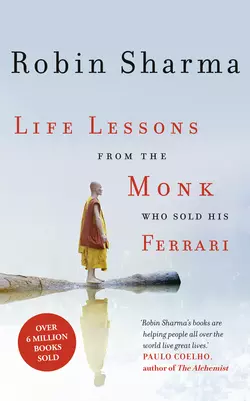Life Lessons from the Monk Who Sold His Ferrari

Робин Шарма
Тип: электронная книга
Жанр: Саморазвитие, личностный рост
Язык: на английском языке
Стоимость: 936.66 ₽
Статус: В продаже
Издательство: HarperCollins
Дата публикации: 16.04.2024
Отзывы: Пока нет Добавить отзыв
О книге: 101 inspirational lessons on how to achieve true happiness, find fulfilment and live peacefully and meaningfully every day, from Robin Sharma, leading life coach and author of the multi-million-copy bestseller The Monk Who Sold His Ferrari.How can one achieve true happiness? Is it possible to with joy, passion and purpose every day? It is – and this potent book, with its powerful life lessons and profound wisdom, can show you how.Here Robin Sharma, one of the world’s leading life teachers and bestselling authors, takes you on a journey towards a new way of living, allowing you to re-purpose your time to make every day meaningful.Offering simple solutions to life’s most frustrating challenges, this is a guide to rebalancing the conflicting forces in your life. Its lessons include:• How to discover your calling• How to see your troubles as blessings• How to enjoy the path – not just the rewards• How to live fully, so you can die happyThis is a truly remarkable book that you will treasure for a lifetime.